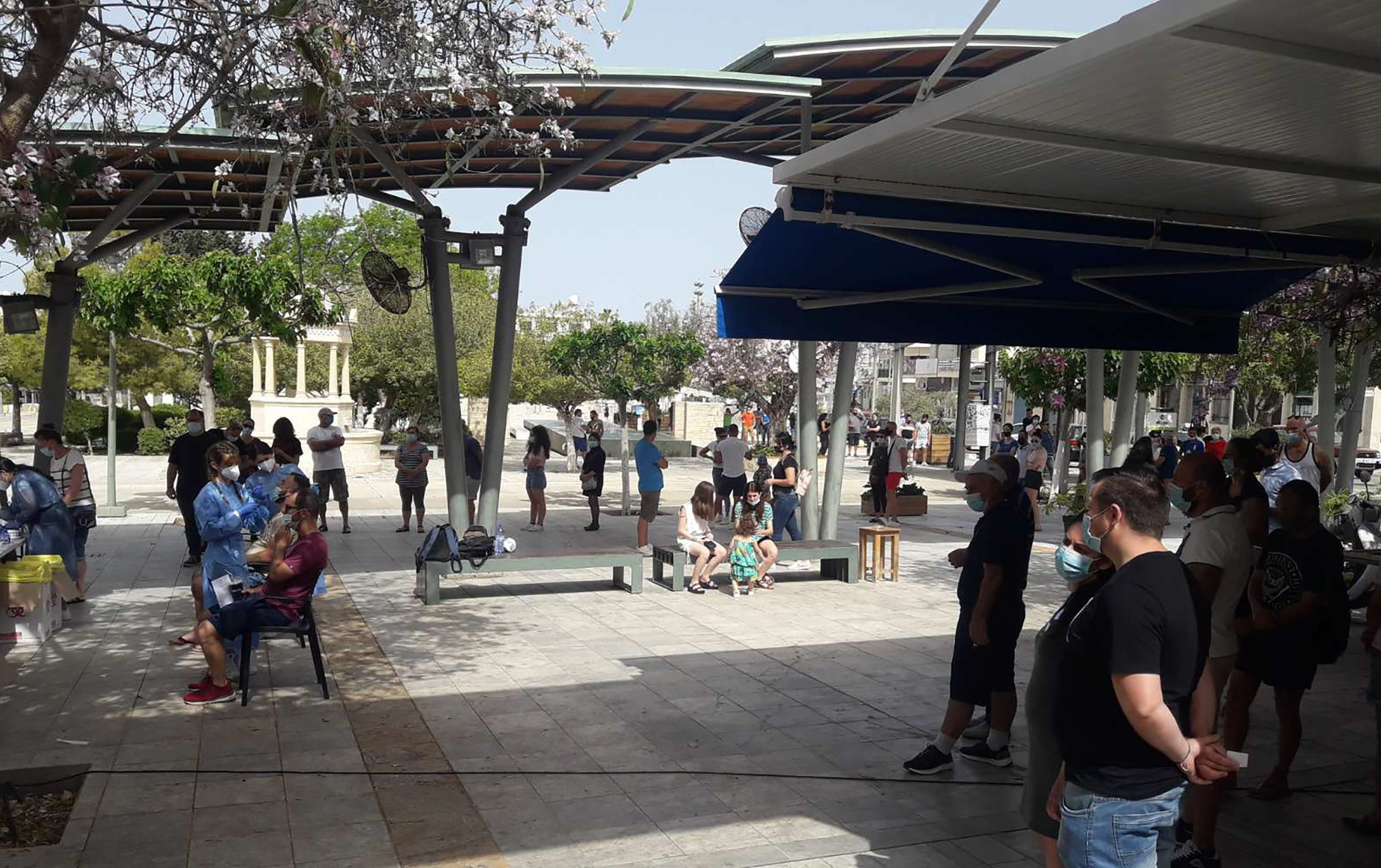The Health Ministry has warned the public that long queues have formed at COVID-19 rapid testing points across Cyprus, urging them to avoid the gridlock.
The ministry announced the wait at seven testing points exceeds 45 minutes, as Cypriots try and obtain a negative test needed to the so-called ‘safe pass’ to move freely.
In Nicosia, long queues were recorded at the State Fair in Engomi, at Panayia Evangelistria church in Pallouriotissa, at Ayios Georgios church in Latsia and Ayios Charalambos church in Yeri.
The testing sites at the Larnaca municipal theatre and Grigori Afxentiou square in Limassol, and the Era Korivos forecourt in Paphos were also very busy.
“To avoid inconvenience, citizens are encouraged to visit one of the other testing sites, where the waiting time is shorter, and they can be assisted faster,” the Health Ministry said.
With the lifting of a two-week national lockdown, Cypriots wanting to enter retail shops, hospitality venues will now need to show a Covid certificate the government has named a ‘safe pass”.
Those eligible must have received at least one dose of a coronavirus vaccine, contracted the virus in the past six months or have a valid 72-hour negative PCR or rapid test.
Authorities said the pass is a temporary measure to help speed up the island’s vaccination rollout in a race to reach herd immunity, with 65% of the adult population vaccinated at least once by the end of June.
On Monday, authorities reopened all schools, obliging students and teachers who have not been vaccinated to test weekly, overcrowding the free national rapid test centres over the weekend.
And 50% of people physically present at their workplace and have not yet been vaccinated will also have to get tested weekly.
People exempted from screening must have been vaccinated with at least one dose of a COVID-19 vaccine a minimum of three weeks earlier.
The Health Ministry conducted a record of 109,846 tests on Sunday, up from the previous record on Saturday of 71,251.
Due to the great demand, testing centres closed at 7.30 pm on Sunday, an hour later than usual.
Currently, there 63 free testing stations operating across the island, along with another 16 mobile units visiting schools.










